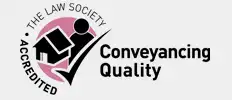- Conveyancing
- Family Law & Divorce
- Wills, Probate & Trusts
-
- Wills, Probate & Trusts
- Will Writing
- Probate
- Trusts
- Powers of Attorney
-
 Wills from £204
Wills from £204
-
 Probate
Probate
-
- Criminal & Motoring
-
- Criminal & Motoring
- Criminal Defence
- Motoring Offences
-
 Motoring Offences
Motoring Offences
-
 Criminal Defence
Criminal Defence
-
- All Personal Services
- Business Services
Jargon Busting: Understanding Conveyancing Terminology
When it comes to buying or selling a property, the legal jargon involved can often be confusing and overwhelming. Conveyancing, in particular, has its own set of legal terminology that can be difficult for non-experts to understand. To help you navigate the conveyancing process with confidence, we’ve broken down some of the most commonly used legal terms in conveyancing.











